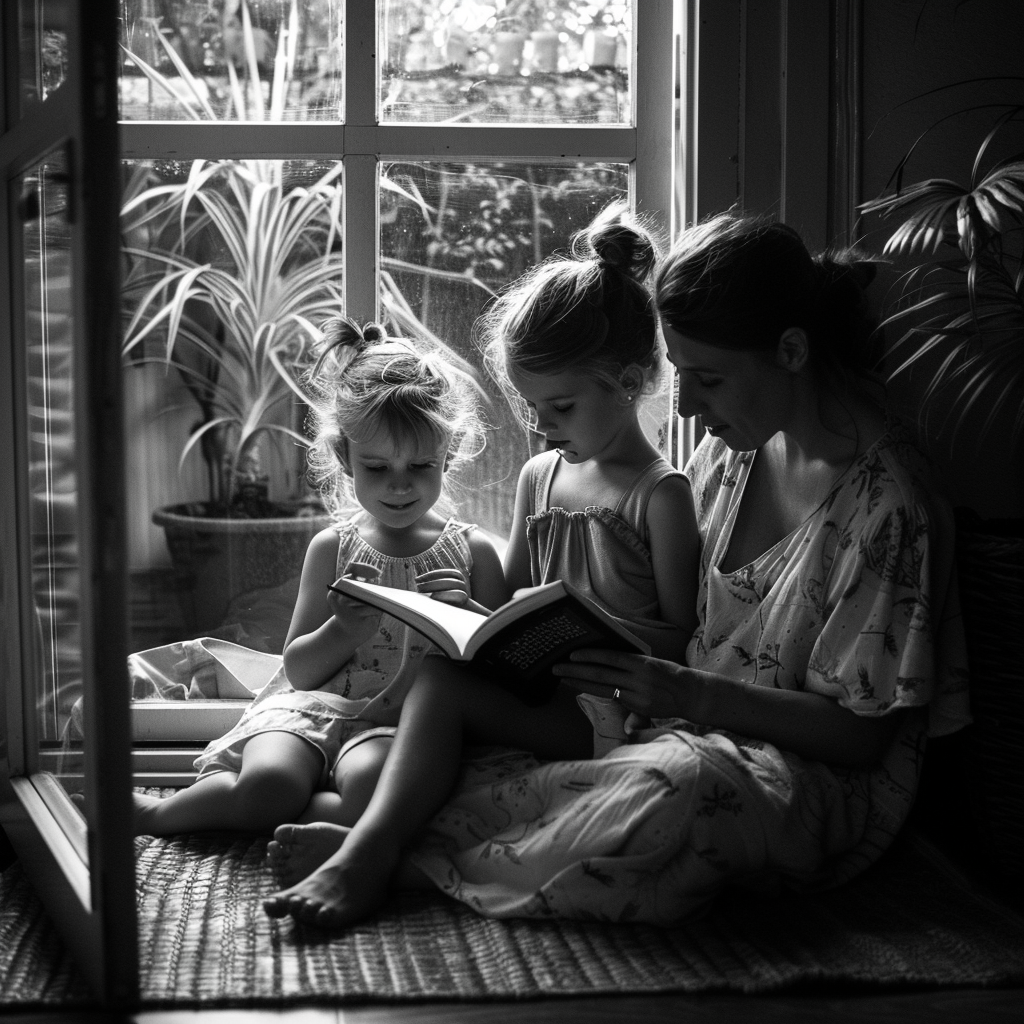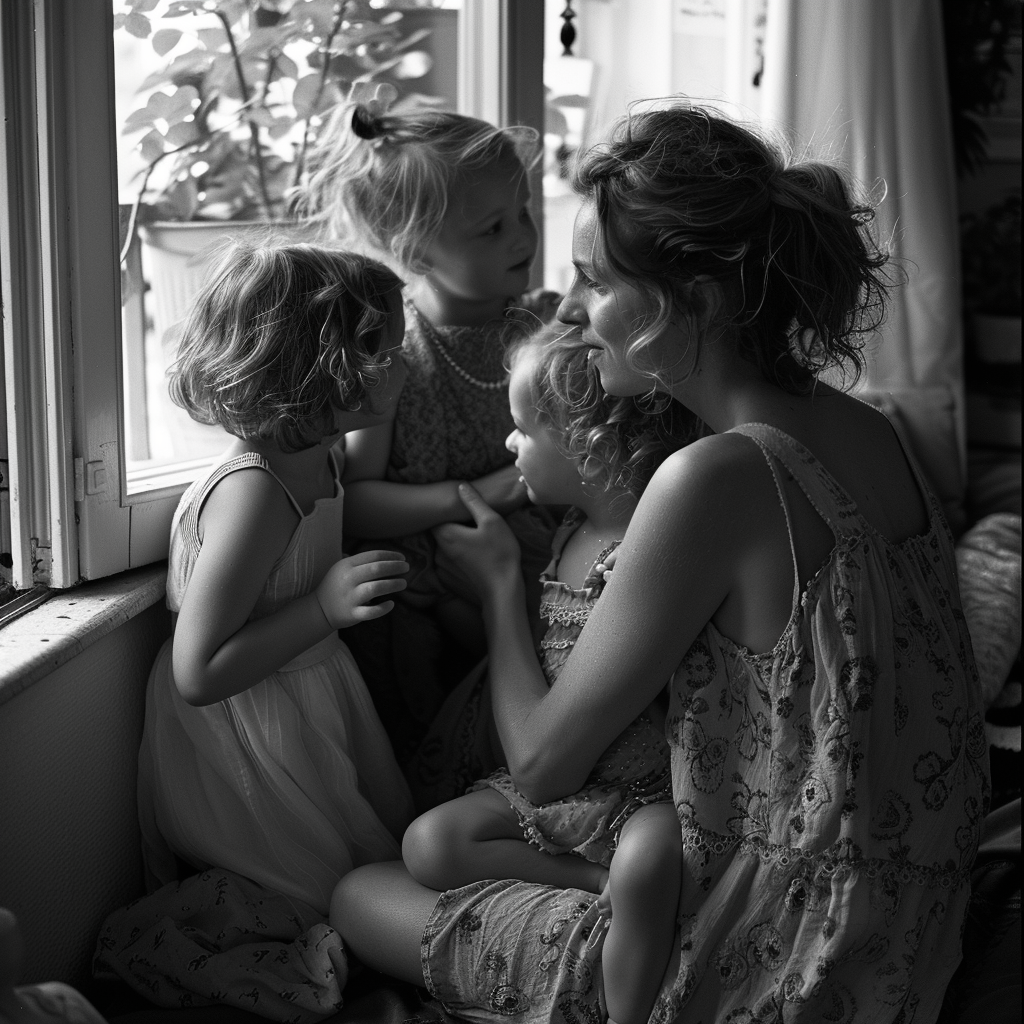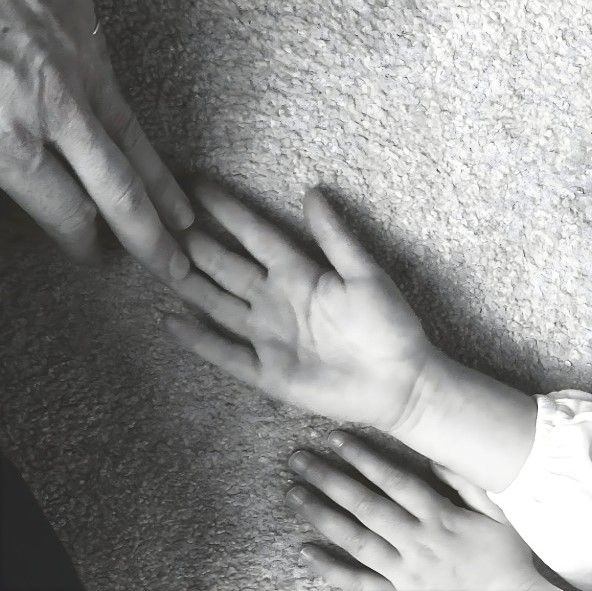
MENU


I’m trying to understand the type of attention that parents develop, particularly those who dedicate a significant amount of time to their children. I have noticed a commonality among them. They are productive in a different way, but often experience stress and worry. I have started to breathe more and become more observant when I’m with my children. I have discovered that there are two types of attention that can be achieved. The same ones you employ while working or gaming; focused attention and rote attention.
Both types of attention require high engagement, what varies is the challenge: High or low. During the months when I took a break from work, I realised that I missed intellectual challenges. After some training I understood I could be intellectually challenged even when not working and being with my children. It was just a different type of attention I needed to implement. Boredom happens when there is low engagement and low challenge (checking our phones while spending time in the park, in the play room, or while the children do extracurricular activities).
One day, I found myself wondering if it is possible to experience “flow” with one’s own children. Some people seem like they were born to spend time with children, and I became curious about how parents can reach that state. It appears to require an art and a patience that not everyone has developed, considering the responsibilities, worries, and endless to-do lists we often have. Psychologist Mihaly Csikszentmihalyi described flow as: “a state of being fully immersed in an activity to the point of losing track of time and experiencing deep enjoyment and fulfillment. It occurs when individuals are highly focused and absorbed in what they are doing, feeling energised and concentrated. Flow arises when the challenges of the activity align with one’s skills, resulting in effortless action.”
I have personally experienced flow in two contexts: during the 22 years I dedicated to competitive sports, and while swimming. It is one of those things that you truly understand only when you live it. However, I initially believed that it was not possible to experience it as a mother while parenting. I was wrong. It took mental effort and years to reach that stage, but it is possible. I started by trying to follow my daughters’ rhythm, their timing, and their way of interacting. While being there I ask myself questions like: What is she thinking right now? What might be her next move? Why did she suddenly change her focus? What triggered this change? I do this while actively playing and interacting, but in moments where they’re focused instead of interrupting then, I ask myself those questions. I focus on understanding their behaviours without judgment.
During this exercise, I suddenly realised we were in harmony. They were focused on their activities at their own pace, and I was focused on mine without interfering but while being present, happy, and feeling productive as well. We often try to adapt to our children, which can make us nervous. However, being together and sharing time should not require us to force ourselves to be someone we’re not.
What if it was about being ourselves while being with them?
We can provide guidance without feeling responsible for every move or trying to fix every scream, we can allow the emotion and be there to receive it. When I let them express themselves and I’m there for comfort them, it feels right. My 5-year-old told me the other day: I know why sometimes my little sister screams, it’s her way to say she is in disagreement. I loved it. Being able to accept their emotional states when they arise, even when I don’t know what to say, leads me to remain silent and gives me the power to reflect. When the right answer comes (perhaps hours later), I try to rationalise it with them.

Gloria Mark in her book: “Attention Span” expresses her concern about a world where self-regulation is being lost. She mentions a study conducted in New Zealand with a sample of 15000 children where screens had a direct impact on self control. According to research, higher levels of self-control in childhood are associated with improved health and financial outcomes, life satisfaction and decreased levels of substance abuse and criminal convictions in adulthood (Moffitt et al., 2011). We’d better take these conclusions seriously. Our days have many hours, and we often fill them with numerous activities, resulting in a constant rush, both us and our children end up emotionally exhausted. To simplify our lives, I have reduced the number of activities and saved them for holidays or other moments. On a daily basis we spend 4 hours together, dinner and bath time are included but we go with the flow, we dance, we do sketches, we talk, there are days when one of us is fussy and the others happy and we try to go through them together. The less I judge their behaviour and the more I collect and then give my point of view the better it works. I don’t know if this is the right way to educate, but I am enjoying it and it feels right. And every once in a while I feel that flow and it’s so fulfilling. And there are no screens, for now.
Every week, we will post a short blog relating to the concept of attention, the latest scientific developments around it, or our updates about our own progress here at Lifeverse!
 Sign up to the blog
Sign up to the blog
If you have an interesting idea that relates to attention, or if you do research on attentional processes and would like your work to be featured on our blog, please reach out - we are always happy to collaborate with brilliant minds from across fields and disciplines!
 Pitch us an idea!
Pitch us an idea!



Distractions were crucial for the survival of our species, helping us react quickly to potential dangers. However, in today’s world, constant notifications hinder our ability to maintain prolonged concentration. In this article our expert emphasizes Cal Newport’s concept of a “deep life” about the importance of focusing on tasks with minimal distractions, whether it’s work or personal activities.
Our working memory, powered by the prefrontal cortex, is essential for planning, organizing, and reasoning. Despite this capability, we often fall short of our goals due to interruptions like notifications. The author shares a personal experiment of limiting WhatsApp usage to reduce stress and improve presence with their daughters, and highlights the importance of managing distractions to enhance productivity and presence.



On this new post our expert explores the concept of attention from a multidisciplinary perspective, pondering its definition, measurement, and significance. It suggests that attention is akin to love, both for oneself and for others. Attention, when fully engaged, enhances experiences and facilitates deeper understanding.
The article draws parallels between attention and acts of caring, such as listening to loved ones. It argues that true attention is essential for experiencing and expressing love. Ultimately, it proposes that exploring attention is synonymous with exploring the capacity for human love, both self-love and love for others.



In this new article our expert reflects on the natural parental fear of their child falling ill and shares a shift in perspective towards sickness. Instead of solely worrying, our expert sees it as an opportunity to listen to their body, be present in the moment, and understand the concept of care.




We shared a personal experience with a five-year-old children, exploring the art of observation and learning through a simple carrot. Embracing Feynman’s approach and impactful lessons from “What Do You Care What Other People Think?”, we aimed to make learning enjoyable and engaging. We highlighted the significance of understanding beyond names—embracing the curiosity to observe and explore. Join us on this incredible journey of exploring the wonders of how the brain learn!




The statements “Everyone knows what attention is” (James, 1890) and “No one knows what attention is” (Hommel et al., 2019) may seem contradictory, but they can coexist. William James refers to a common, intuitive understanding of attention, seen in everyday phrases like “give me attention.”
On the other hand, Hommel and colleagues highlight the evolving and sometimes contradictory scientific accounts of attention. While lay individuals agree on what attention is, scientists can have ongoing debates.




How can caregivers master the art of observing children? What can we learn by simply following a child’s natural instincts and development? And how does that challenge traditional approaches to education?
This blog post offers some thoughts and reflections from parents, a Montessori guide, and a paediatric neurologist on these questions!


Distractions were crucial for the survival of our species, helping us react quickly to potential dangers. However, in today’s world, constant notifications hinder our ability to maintain prolonged concentration. In this article our expert emphasizes Cal Newport’s concept of a “deep life” about the importance of focusing on tasks with minimal distractions, whether it’s work or personal activities.
Our working memory, powered by the prefrontal cortex, is essential for planning, organizing, and reasoning. Despite this capability, we often fall short of our goals due to interruptions like notifications. The author shares a personal experiment of limiting WhatsApp usage to reduce stress and improve presence with their daughters, and highlights the importance of managing distractions to enhance productivity and presence.
Label
17-05-24

On this new post our expert explores the concept of attention from a multidisciplinary perspective, pondering its definition, measurement, and significance. It suggests that attention is akin to love, both for oneself and for others. Attention, when fully engaged, enhances experiences and facilitates deeper understanding.
The article draws parallels between attention and acts of caring, such as listening to loved ones. It argues that true attention is essential for experiencing and expressing love. Ultimately, it proposes that exploring attention is synonymous with exploring the capacity for human love, both self-love and love for others.
Label
09-04-24

In this new article our expert reflects on the natural parental fear of their child falling ill and shares a shift in perspective towards sickness. Instead of solely worrying, our expert sees it as an opportunity to listen to their body, be present in the moment, and understand the concept of care.
Science

29-02-24

We shared a personal experience with a five-year-old children, exploring the art of observation and learning through a simple carrot. Embracing Feynman’s approach and impactful lessons from “What Do You Care What Other People Think?”, we aimed to make learning enjoyable and engaging. We highlighted the significance of understanding beyond names—embracing the curiosity to observe and explore. Join us on this incredible journey of exploring the wonders of how the brain learn!
Science

06-02-24

The statements “Everyone knows what attention is” (James, 1890) and “No one knows what attention is” (Hommel et al., 2019) may seem contradictory, but they can coexist. William James refers to a common, intuitive understanding of attention, seen in everyday phrases like “give me attention.”
On the other hand, Hommel and colleagues highlight the evolving and sometimes contradictory scientific accounts of attention. While lay individuals agree on what attention is, scientists can have ongoing debates.
Science

12-01-24

How can caregivers master the art of observing children? What can we learn by simply following a child’s natural instincts and development? And how does that challenge traditional approaches to education?
This blog post offers some thoughts and reflections from parents, a Montessori guide, and a paediatric neurologist on these questions!
Science

13-12-23
If you have an interesting idea that relates to attention, or if you do research on attentional processes and would like your work to be featured on our blog, please reach out - we are always happy to collaborate with brilliant minds from across fields and disciplines!
 Pitch us a blog idea!
Pitch us a blog idea!
Every week, we will post a short blog relating to the concept of attention, the latest scientific developments around it, or our updates about our own progress here at Lifeverse!
 Sign up to the blog
Sign up to the blog